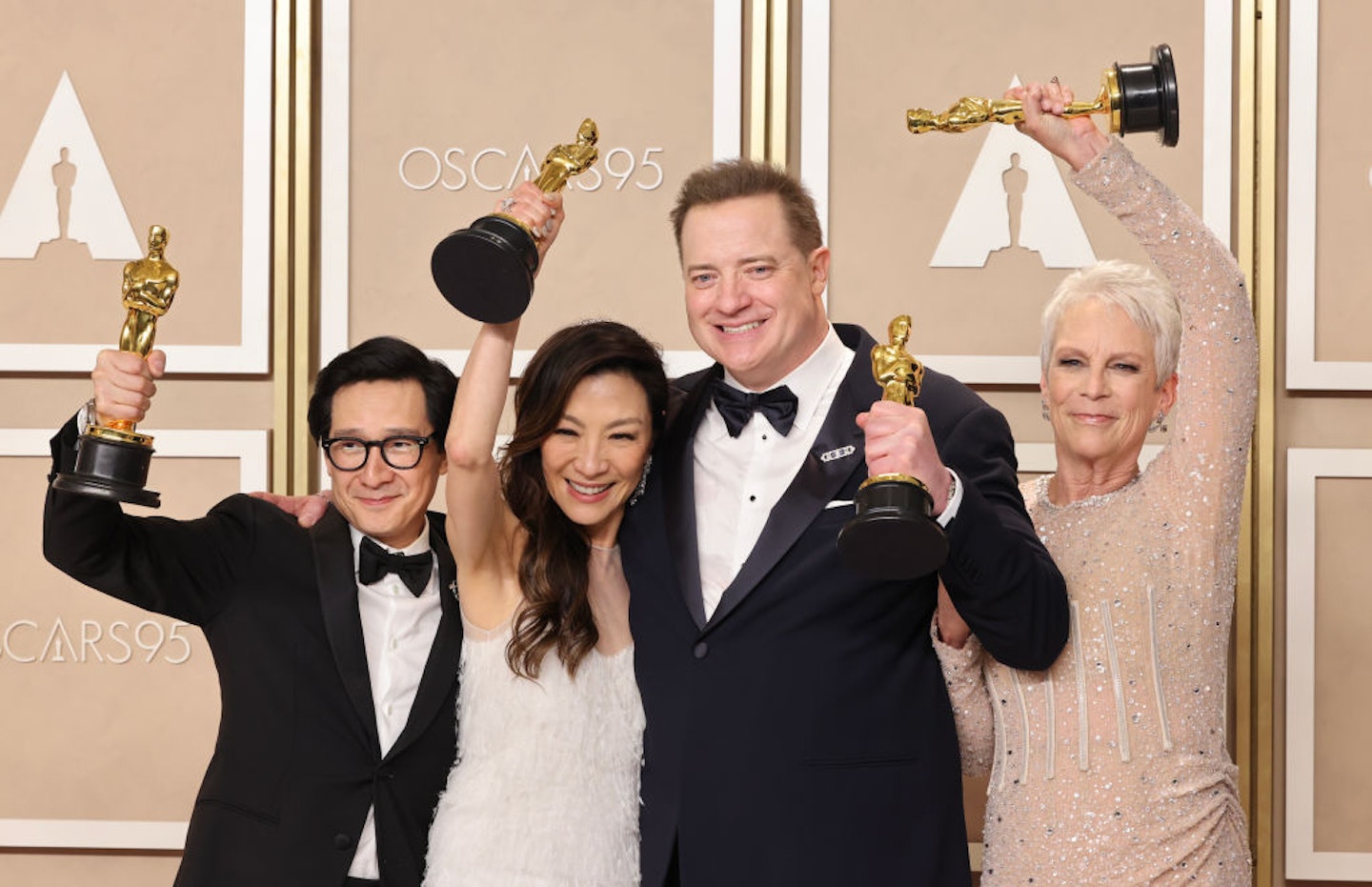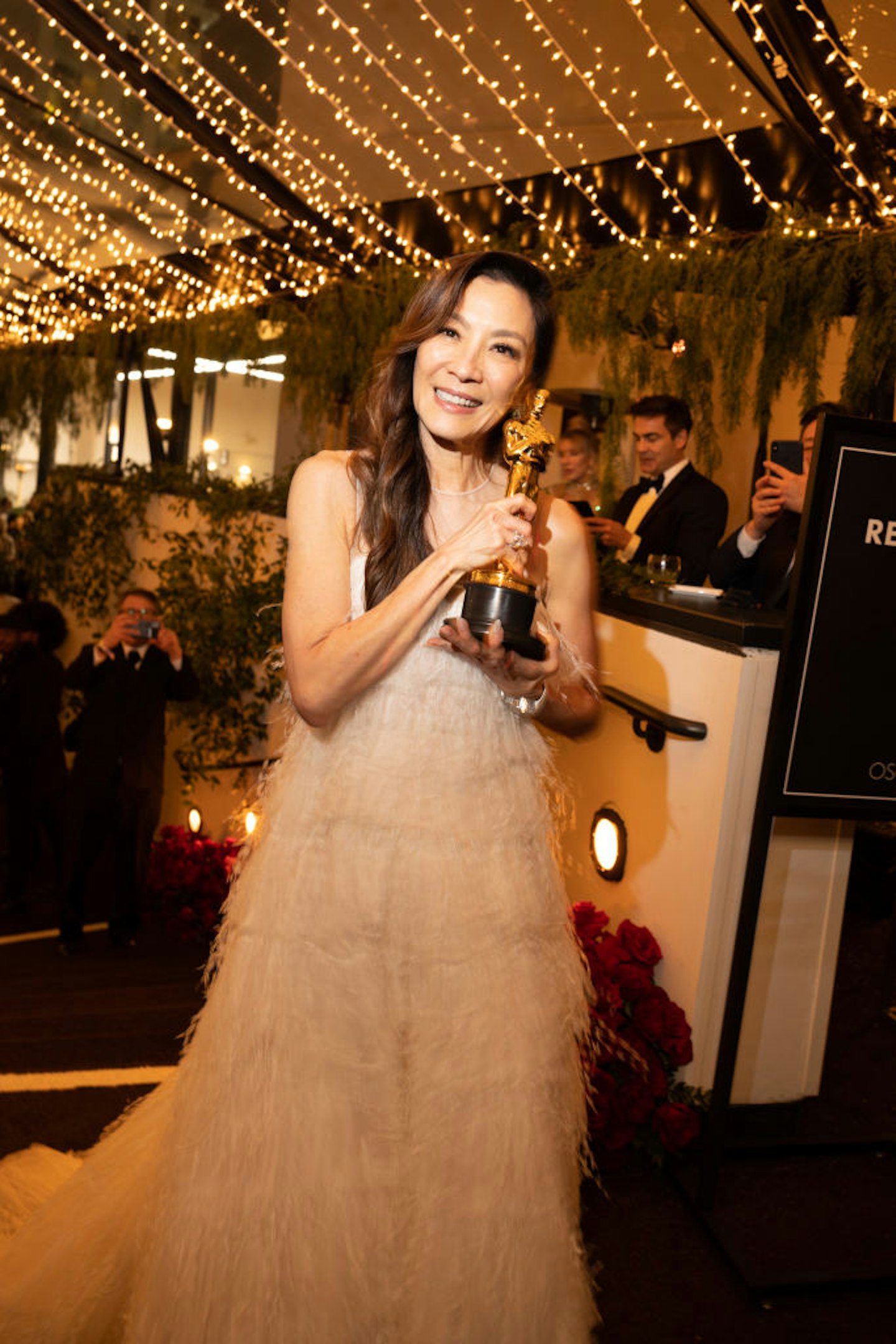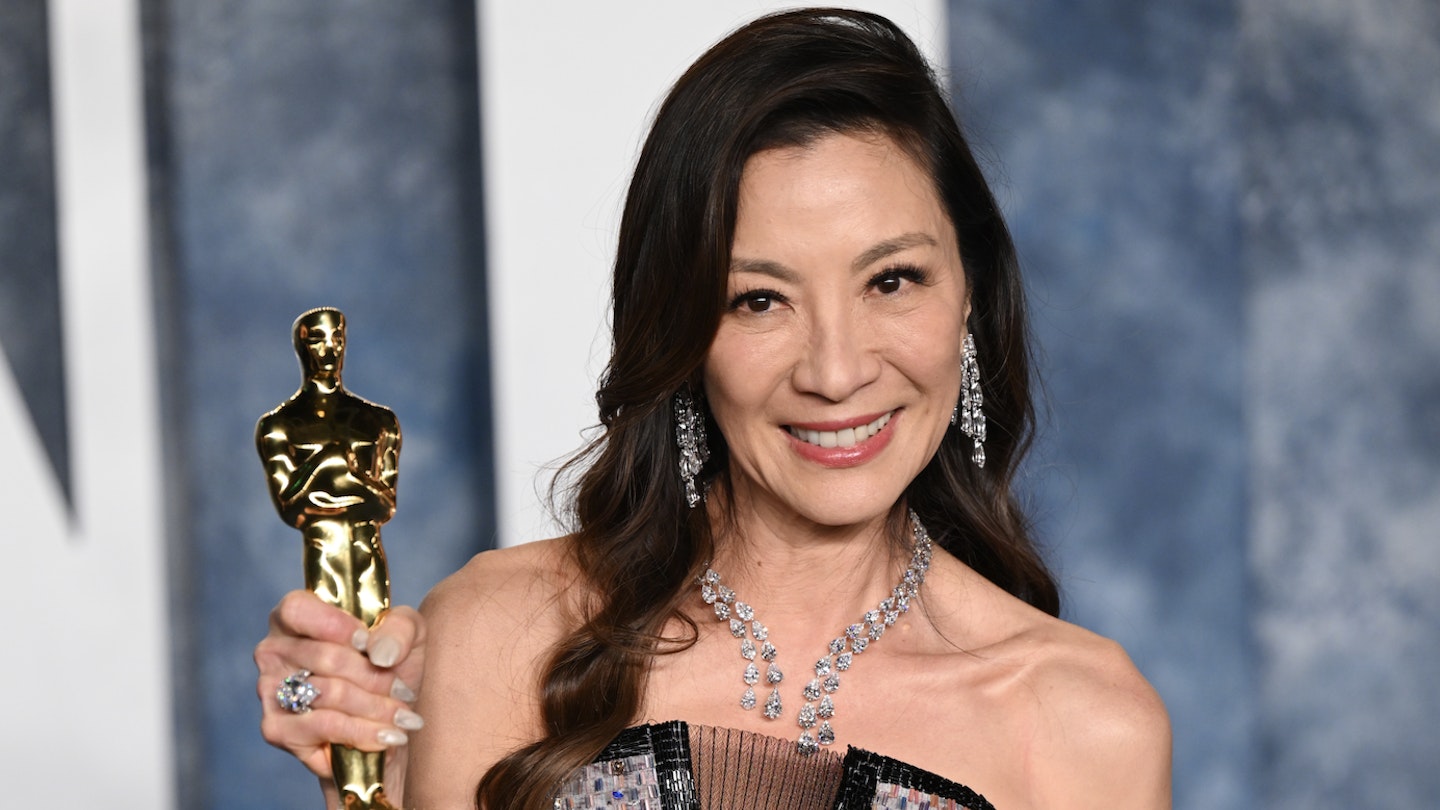When I was little, I was obsessed with Mulan. The animated film, set in China, told the story of a young woman who disguises herself as a male soldier to take her father’s place on the battlefield. It’s been lauded as an example of a 'seminal queer narrative' in Disney. It was also the first time that I, a mixed-race girl with a mum from Singapore, saw a ‘princess’ who wasn’t white. Mulan has black hair, eats congee and is the relatable(ish) combination of a hot mess and a badass, throwing scaldingly hot tea over the matchmaker and defeating the fearsome Shan Yu.
Apart from Mulan, I had Lucy Liu, which is probably why another favourite movie was Charlie's Angels, and Cho Chang, Harry Potter's first crush, played by Katie Leung. And, well, that was pretty much it.

This is why seeing Michelle Yeoh, the 60 year-old actor from Malaysia, win at last night's Oscars - she took home the biggest acting award of the night, Best Actress, for her performance in Everything Everywhere All at Once - meant so much to me. In fact, Vietnamese-American Ke Huy Quan winning Best Supporting Actor, also for his role in Everything Everywhere All at Once, means that half of the night’s acting gongs went to South East Asians. (Ariana DeBose couldn't disguise the feeling in her voice when she shakily read his name off the card.)
I can’t tell you how exciting, and emotional, it was to wake up to that news considering that there is still a significant 'bamboo ceiling' when it comes to the acting industry - and many, many others, obviously. (According to an infographic from the New York Times, just 23 individuals to be nominated for acting Oscars, out of 1,808, have been Asian.)
In her speech, Michelle, who continued her winning streak on the red carpet with a frothy tiered gown by Dior Couture, said as she held aloft her newly-acquired statuette: ‘For all the little boys and girls who look like me watching tonight, this is a beacon of hope and possibilities.’ Seeing her face and hearing her voice, I was reminded of my much-missed family and friends back home in Singapore. The tears threatened to spill over when she said, ‘I want to dedicate this to my mum, all the mums around the world because they are really the superheroes.’
Michelle once told a story about her mother on The Graham Norton Show, which reminded me so much of my grandmother. Back for a visit in Malaysia, and having graduated from drama school, Michelle’s mum forged her signature to enter her into Miss Malaysia. (She won, of course.) I, having received a Masters, used to be elevated to the esteemed level of professor by my grandmother, who used to force the three of us - my mum, my sister and I - to stand up as part of her weekly church service and wave to everyone like celebrities when we were introduced by the pastor.

If 11 year-old me could have seen someone like Michelle - or Stephanie Hsu, Hong Chau and Harry Shum Jr, for that matter - in magazines or on TV, I might have embraced my heritage instead of being embarrassed at the way it marked me out as different. If friends commented on my 'black hair', I used to correct them and say it was actually just dark brown. I also used to fold down the top of my timetable because it was printed with our middle names and one of mine - Enmin - would always elicit comments from my teachers. Now, ESEA (East and South East Asian) actors play leading characters in high school rom-coms (Lana Condor), they headline smash-hit shows on Netflix (Hoyeon Jung) and, yes, they win Oscars (Chloé Zhao, Best Picture for Nomandland, Youn Yuh-jung, Best Supporting Actress for Minari, to name two recent examples).
There might be a long way to go when it comes to representation - in every industry, not just films - but last night feels like a leap forward. As Ke Huy Quan said in his acceptance speech: 'My journey started on a boat. I spent a year in a refugee camp and, somehow, I ended up here on Hollywood's biggest's stage. They say stories like this only happen in the movies. I cannot believe it's happening to me.'
